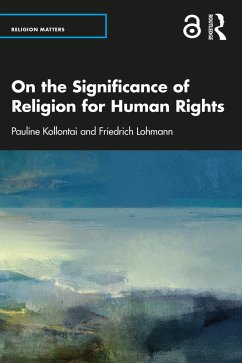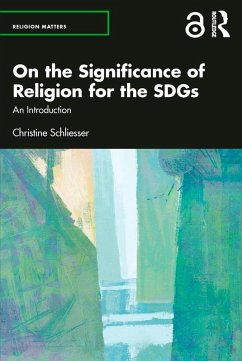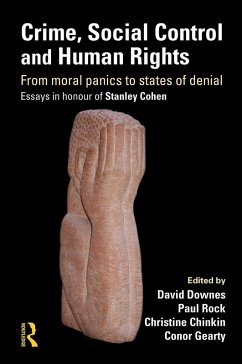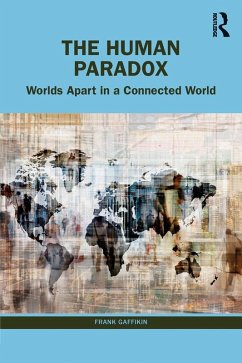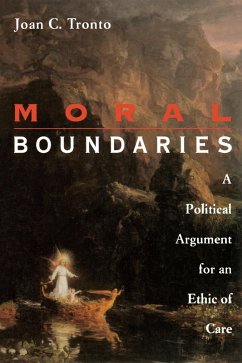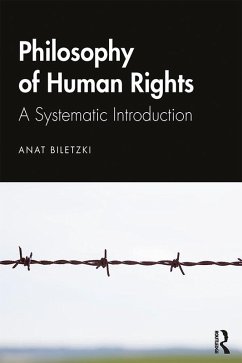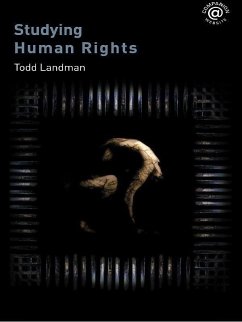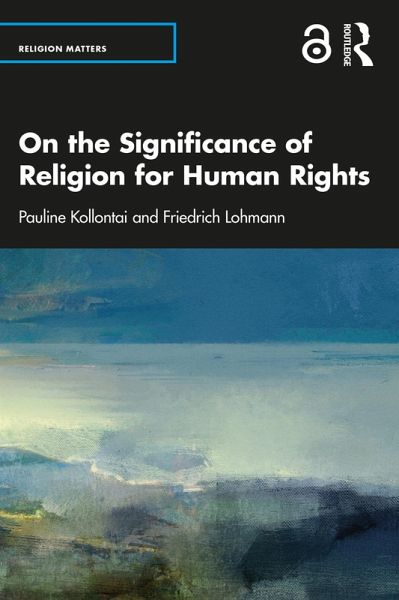
On the Significance of Religion for Human Rights (eBook, ePUB)
Versandkostenfrei!
Sofort per Download lieferbar
0,00 €
inkl. MwSt.
Weitere Ausgaben:

PAYBACK Punkte
0 °P sammeln!
This progressive volume furthers the inter-religious, international, and interdisciplinary understanding of the role of religion in the area of human rights.Building bridges between the often-separated spheres of academics, policymakers, and practitioners, it draws on the expertise of its authors alongside historical and contemporary examples of how religion's role in human rights manifests. At the core of the book are four case studies, dealing with Hinduism, Judaism, Christianity, and Islam. Authors from each religion show the positive potential that their faith and its respective traditions...
This progressive volume furthers the inter-religious, international, and interdisciplinary understanding of the role of religion in the area of human rights.
Building bridges between the often-separated spheres of academics, policymakers, and practitioners, it draws on the expertise of its authors alongside historical and contemporary examples of how religion's role in human rights manifests. At the core of the book are four case studies, dealing with Hinduism, Judaism, Christianity, and Islam. Authors from each religion show the positive potential that their faith and its respective traditions has for the promotion of human rights, while also addressing why and how it stands in the way of fulfilling this potential.
Addressed to policymakers, academics, and practitioners worldwide, this engaging and accessible volume provides pragmatic studies on how religious and secular actors can cooperate and contribute to policies that improve global human rights.
Building bridges between the often-separated spheres of academics, policymakers, and practitioners, it draws on the expertise of its authors alongside historical and contemporary examples of how religion's role in human rights manifests. At the core of the book are four case studies, dealing with Hinduism, Judaism, Christianity, and Islam. Authors from each religion show the positive potential that their faith and its respective traditions has for the promotion of human rights, while also addressing why and how it stands in the way of fulfilling this potential.
Addressed to policymakers, academics, and practitioners worldwide, this engaging and accessible volume provides pragmatic studies on how religious and secular actors can cooperate and contribute to policies that improve global human rights.
Dieser Download kann aus rechtlichen Gründen nur mit Rechnungsadresse in A, B, BG, CY, CZ, D, DK, EW, E, FIN, F, GR, HR, H, IRL, I, LT, L, LR, M, NL, PL, P, R, S, SLO, SK ausgeliefert werden.




